‘What we are witnessing on the UWS is a group proudly boasting their shared belief that their perceived safety and protection of property values matter more than the lives of others, and have always mattered more than the lives of others.’
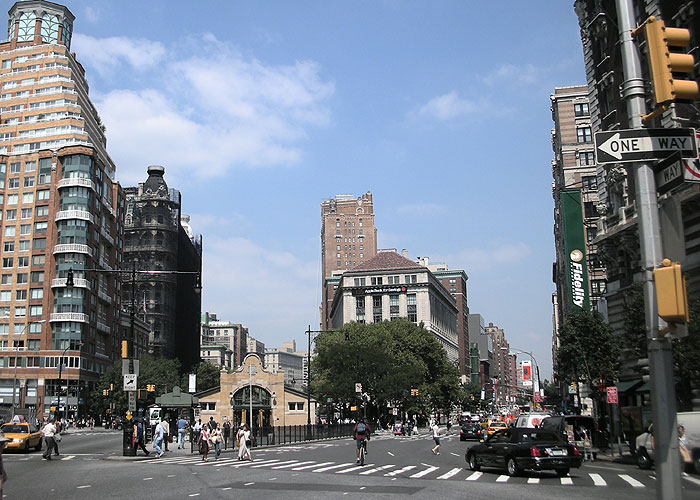
K72ndst
Last week, the city committed to ceasing relocation of additional people experiencing homelessness from dangerously crowded shelters to vacant Upper West Side hotels. It’s been a jarring scene to witness against the backdrop of the neighborhood I grew up in, where my parents have called home since 1976. Wealthy, politically powerful, predominantly White Upper West Siders claim these relocations have somehow violated “their” right to a “safe” neighborhood. They’ve elevated the long defunct, vigilante Guardian Angels (and their extremely problematic founder, Curtis Sliwa) to some ridiculous righteous relevance. This could be laughable if it were not very real and positively terrifying.
An enormous amount of this conversation has been dedicated to a particular narrative about the “city’s lack of transparency” in their placement process. Many claim that had the city hosted a public forum to involve the community in this process…well, I’m not sure exactly what they claim would be different.
A transparent process would have changed little – except perhaps the uproar would’ve started sooner. A brilliant friend noted: “There is a belief, conscious or unconscious, in this cry for transparency that they could have changed the outcome had they known ahead of time. (And perhaps they could have, because that’s how privilege works.)”
Demanding focus on the purported failures of bureaucracy allows those who feel self-conscious about the fact that they, too, do not want “these men” here – but just don’t want to be the ones to say it – to keep a comfortable distance from the actual conversation while still channeling their apoplexy somewhere. Scapegoating the city’s famed incompetence is a sleight of hand of the worst sort. This is also why the transparency cries are so often accompanied by declarations of compassion (“I care deeply about the issue of homelessness in our city, but I cannot get past the lack of transparency on the part of the city. It’s outrageous.”) And rage the Upper West Side has, in one way or another, in spades.
 CityViews are readers’ opinions, not those of City Limits. Add your voice today!
CityViews are readers’ opinions, not those of City Limits. Add your voice today!
Any of us who have been following closely know these conversations largely ignore the fact that the Upper West Side is not housing a “disproportionate” number of people experiencing homelessness in hotels or anywhere else. Folks have been moved from crowded shelters to hotels all over the city. (A reminder: These relocations are part of a public health effort to reduce the spread of COVID and prevent people from dying.) You will find people in every neighborhood experiencing homelessness because housing insecurity is a protracted crisis that predates but has been exacerbated by the pandemic.
What we are witnessing on the UWS is a group proudly boasting their shared belief that their perceived safety and protection of property values matter more than the lives of others, and have always mattered more than the lives of others. Too many are showing their true character and it looks like Amy Cooper. At best. This is liberalism in 2020. It is not a bastardization or coopting of liberalism in 2020. And under this banner, yes, the Upper West Side is a raucous bastion of liberal ideals.
These liberal ideals include both evicting vulnerable people seeking shelter and refuge during a pandemic, and increased reliance on police and vigilantism to “bring the neighborhood back to its former glory.” It sounds like White supremacy. It is White supremacy. And let me be abundantly clear: Both things are profoundly likely to lead to violence against and death of Black and brown people. Advocating for these things is advocating for more violence against and death of people who were already far more likely to be subject to violence and death.
As of this writing, over $100,000 has been raised by the “get these men out” gang to hire high-profile lawyers, cowering loudly under the guise of “keeping our streets safe.” This amount of strategically organized financial and political capital toward a proposed “solution” that will result in violence and death should be a clear signal to us all about who is protected and who is not; about whose lives matter and whose do not.
These days I hold an intense bitterness for a neighborhood I haven’t lived in for some time but is, really, my only home. I do have to actively caution myself against saying things like “the Upper West Side has become a place I do not recognize” though you can bet that bounces between my ears all the damn time. These types have always been here. They have categorically more wealth and power than they did during the era of my childhood, that’s for sure. But they are not alien forces. They are a pillar of whiteness. A whiteness that kills. And for that whiteness I have long vowed to take responsibility.
So, what really is my point here? I want the people I pass on the street to care about dignity and safety for all people. I want those same people to understand how conditioned whiteness makes it hard for us to see how dangerous we can be, how dangerous we too often are, to others. Part of whiteness – something no one chooses to inherit nor will any of us soon escape – is believing chiefly in our “right” to comfort.
Conversations about community safety are deeply complex, perhaps now more than ever as the language of abolition finally creeps (or creeps back, depending on your historical perspective) into the mainstream. There’s a lot to reckon with. The fact of systems dismantling is by nature unsettling, including for those of us in favor. And as with so many things in this country, we have to be diligent about our unlearning. We are responsible for interrupting the rhetoric we’ve been spoon-fed our entire lives. When safety is only an entitlement for some, what is our safety worth?
Tonight on @WBAI‘s Max & Murphy Show: The Upper West Side homeless controversy with @HelenRosenthal and @UWSOpenHearts … and will schools be ready even after the mayor’s delay? We’ll ask Asamia Diaby of @AQE_NY. Live at 5 on 99.5 FM or here https://t.co/ih85FhZElZ
— Jarrett Murphy (@jarrettmurphy) September 2, 2020
Lastly, and wow does this one still need to be said: Don’t call the cops on people. Don’t call the cops because you’re “suspicious.” Suspicion is deadly when weaponized by whiteness and White bodies. Privileging White folks’ comfort (which we’re already drowning in) is not community safety. It is oppression. Instead, if you find yourself in a situation requiring intervention, consider one of these alternatives to calling the police: Don’t Call the Police and/or NY Peace.
I wish for a more wholly compassionate future where community safety is neither a tool nor a privilege of the rich, but a right recognized by and for all.
Meg Sullivan grew up on West 100th Street and has lived in Harlem since 2012. All thoughts reflected here are her own (under profound influence of James Baldwin and E.S. Glaude) and do not represent any institution with which she is affiliated.


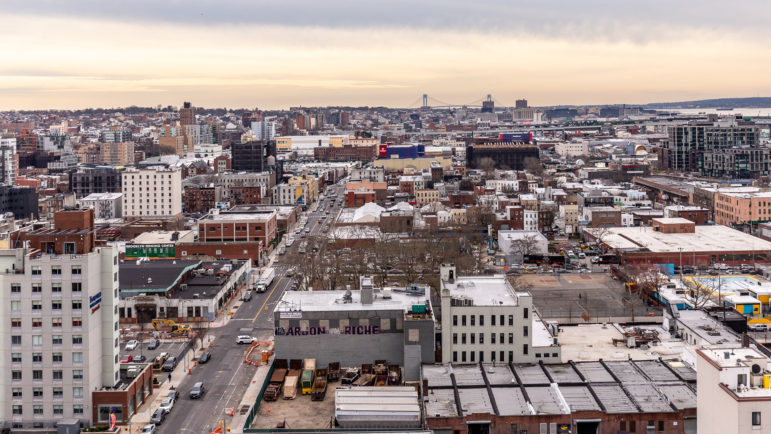
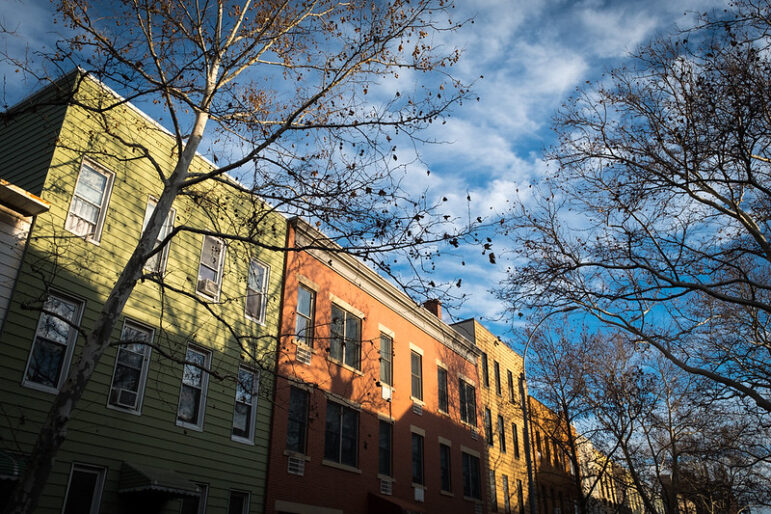
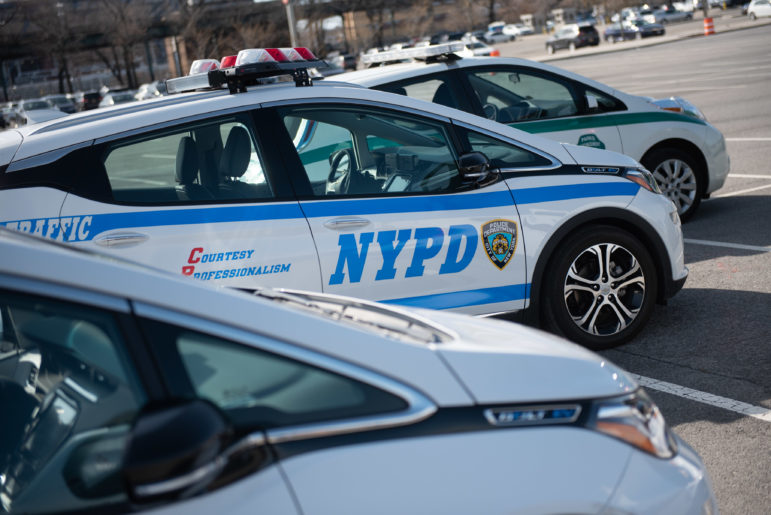
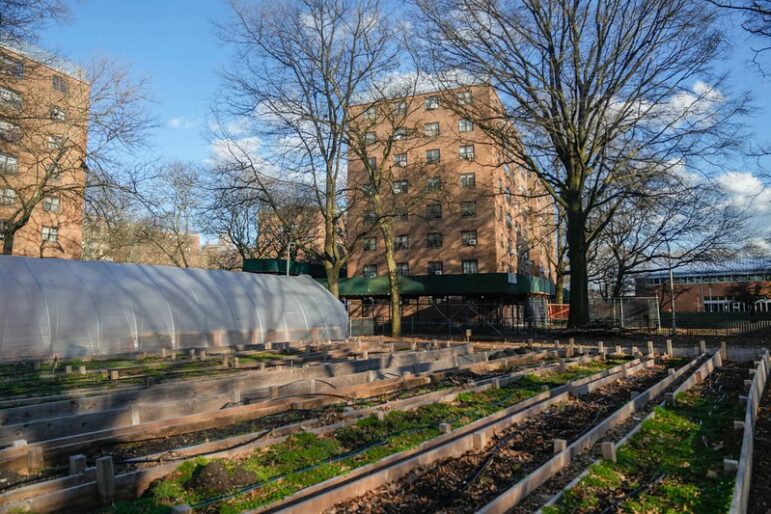
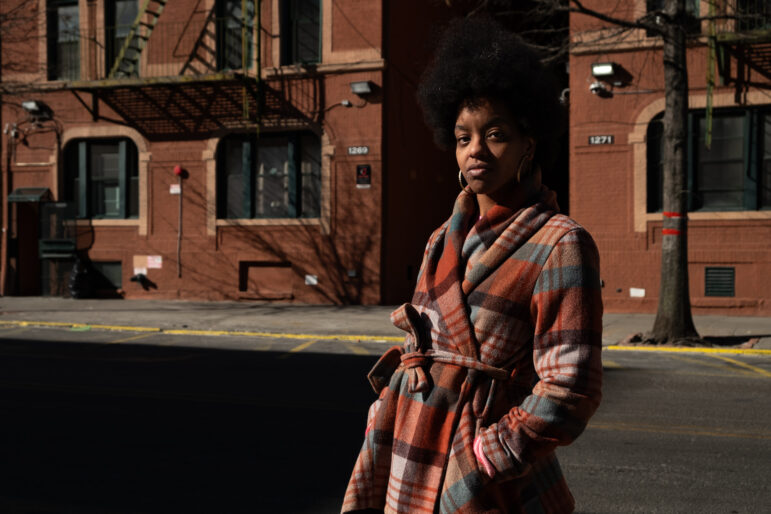


7 thoughts on “Opinion: On the UWS, a Privileged Rage Greets the Homeless”
Yes, Meg. Right on. The Upper west side is not as it once was, when I moved there in 1974 (and still live there). The spirit of “We’re all in this together” has gone, and the spirit of “I’m in it for myself,” has triumphed. Part of the reason: so few rental apartments compared to years ago. So many $1 million and over coops and condo, which make people feel entitled to their entitlement. So sad.
I have an honest and sincere question. I’m a white, liberal woman who lives in Washington Heights. The homeless crisis in New York is something I feel terrible about, particularly because I have so many stopgaps in my life that it’s not something I am at risk of—though I know it can happen to anyone. I donate money to organizations but have never donated time, and I know I should. There’s a homeless shelter in the neighborhood that caters to men with mental health issues. I have noticed in the past couple months that the number of men on the street is increasing, and it seems that their access to help is decreasing. I’ve been followed down the street twice in the middle of the day in the past three weeks. Certainly as a woman it’s not the first time I’ve been confronted by men and put in uncomfortable situations. But these interactions feel different because they’re not sexual confrontations (those I’m used to and can use aggression to defuse—something I cannot do in these situations). And though I’m my 30s, I have a medical condition that makes me particularly worried about COVID, and I don’t feel I can control a situation when a person is accosting me like has happened. I feel like a P.O.S., but the homeless people in my neighborhood frighten me. Of course I haven’t called the police—but it’s no secret that the shelter closed during the day, and everyone knows what’s going on and no one is doing anything. Is this just going to be how it is?
Thank you! Please know that not everyone in your (our) neighborhood feels like those you describe. Those voices may be louder than ours, but it doesn’t mean they are the only opinions. The UWS Open Hearts Initiative is here with just that – an open heart. Thanks again for the great article. Let us know how we can help you (or if you want to help us!).
While the situation is indeed sad, particularly for those of us who have lived on the UWS for decades, and know its historically welcoming character, Ms. Sullivan should take some comfort in the fact that not ALL UWSers are using “quality of life” and “safe and clean neighborhood” as euphemisms for NIMBYism.
In fact, for every NIMBY, there is a tolerant and compassionate UWSer who is welcoming and helping to integrate our new neighbors during their temporary stay. Groups like Open Hearts Initiative are positioning themselves as a positive alternative to the hyperventilating and fear-mongering of NIMBYism. OHI has been holding supportive events outside the hotels, and working with the social service providers at the hotels to provide supplies and other requests. We interact with the homeless men and women at these events, and they are enormously appreciative. Many of them spoke at OHI’s most recent event, expressing their gratitude, and reminding us all that what they are ultimately seeking during their temporary stay at the hotels, and their more extended stays at the shelters, is a permanent roof over their head. And the service providers have in fact been successful at moving some of the “hotel homeless” into permanent housing in just the short time that they have been here.
Ultimately, as Ms. Sullivan points out, the reason and goal of this move – however badly planned or implemented it might have been – is to save lives. And many of us are more than willing to take a temporary “hit” to our “quality of life” if it means dozens will survive the pandemic.
While I agree with the fundamental values evident in this article, I find this article problematic. It correctly asserts that “conversations about community safety are deeply complex”, yet basically it is a rant. Rants rarely contribute to good outcomes.
To begin with, the writer seems to oppose transparency as something negative that generates opposition. Is opacity really desirable? Only for dictatorships and incompetent administrations. Transparency does not mean asking permission, but it does open the possibility for participation. In this case, opacity gave the aggrieved a big head start over the compassionate.
Opacity erodes the basis for trust. Waking up one morning and finding out something has been done to you is a legitimate cause for grievance. By contrast, effective communication and consultations, in this case at least with electeds, could have diluted outrage by facilitating understanding of what is going on and why it is necessary. “Do it with them, not to them” is a core principle of change management.
Second, this article perversely defines “liberalism” by the behavior of the racists and NIMBYs. The word, “liberal” is misused a lot and perhaps has become devoid of meaning. But racism and segregation are fundamentally illiberal in the classic sense of the word. If liberalism is defined by NIMBYs and racists merely because some consider themselves to be liberal, then by the same logic Black Lives Matter would be a lie because some of those same NIMBYs and racists wear that sentiment also.
Third, this article, which was written by a non-resident of UWS, ignores and thereby erases the tolerance and compassion of many UWS residents, many of whom have taken action to defend and support the UWS’s newest residents.
In my opinion, an effective approach would be to demand better execution by the city, and retake the moral high ground. It appears to me the local council member and hopefully others have/will take up the former. UWS community groups have certainly taken action on the latter.
Wow, a lot to unpack in this opinion piece. Here are some of my favorite parts:
“White Upper West Siders claim these relocations have somehow violated “their” right to a “safe” neighborhood.” Well yes, it has. They moved in sexual predators right next to schools and playgrounds that weren’t legally allowed to be there. The residents of these shelters are frequently seen doing hard drugs, public drinking, and hanging out on medians of popular intersections without masks while not socially distancing.
“Many claim that had the city hosted a public forum to involve the community in this process…well, I’m not sure exactly what they claim would be different.” Sometimes people just want to be heard and feel like they were consulted or given a heads up even if they don’t like the inevitable outcome. The writer seems to give a lot of credit to the homeless residents, many of which are sexual predators and criminals, than to the law abiding UWS community she chastises.
“They are a pillar of whiteness. A whiteness that kills.”
Does the writer hear herself? A whiteness that kills? Now these people are killers? What is she basing this off of? Just sounds like she is a self-hating white person.
“Lastly, and wow does this one still need to be said: Don’t call the cops on people. Don’t call the cops because you’re “suspicious.”
Again, the writer is making assumptions about people and stating sweeping biased generalizations that highlights her hypocrisy. It seems that many UWSers are not calling the cops en masse to report their suspicions, let alone crimes. In fact, at the Community Board 7 meeting on Tuesday night Captain Neil Zuber, commander of the 20th Precinct, urged locals to report crimes. You can read more about that in the WSR here and watch the recording of the meeting.
At the end of the day, why was this decision even made? The UWS is one of the most densely populated residential neighborhoods. Why not choose hotels downtown like in FIDI that are not as populated, especially if the intention is to prevent the spread of COVID-19. It just doesn’t show much thought, planning, or use of logic on the city’s part.
Hope the gentrifying writer stays in Harlem and stops her self-righteous preaching about the ills of other white people.
I am wondering why the City decided to place homeless families with children in midtown hotels – midtown is a bad place for children/families and far from parks, food shopping, libraries (pre- Covid) etc- but placed homeless adults grappling with substance abuse in a residential neighborhood?